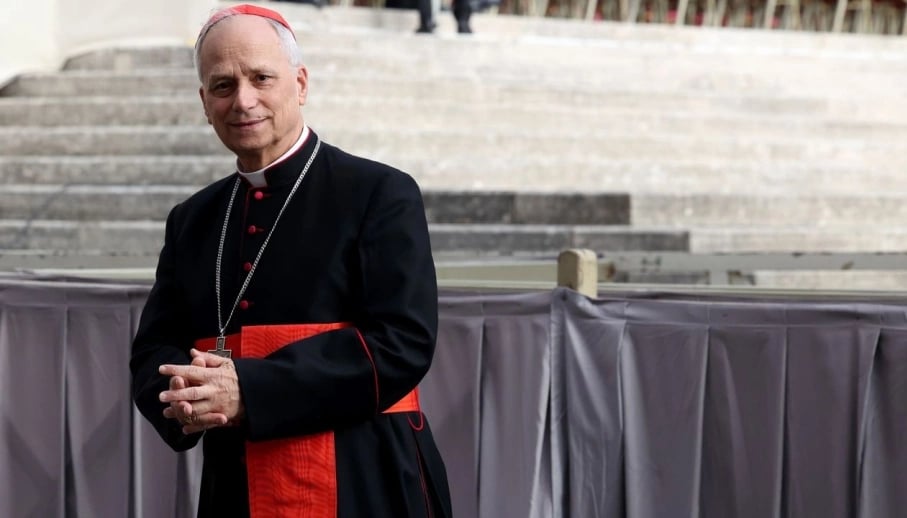What Are the Peruvian and Latin American Communities Saying About Someone Who Worked There Becoming Pope?
Peruvian and Latin American reaction to Pope Leo XIV: Exploring the pride, hopes for social justice, and any concerns about the new Pontiff with deep ties to the region.


The election of Cardinal Robert Francis Prevost as Pope Leo XIV has resonated deeply within Peru and across Latin America, regions where he dedicated a significant portion of his life and ministry. For many, his ascension to the papacy is not just the election of an American, but the recognition of someone who lived among them, understood their realities, and became one of their own. So, what exactly are the Peruvian and Latin American communities saying about this historic event?
A Sense of Pride and Belonging in Peru:
In Peru, the reaction has been overwhelmingly one of joy and profound pride. The fact that Cardinal Prevost, who served as a missionary, trained seminarians, and eventually became the Bishop of Chiclayo, has risen to lead the Catholic Church is seen as a historic moment for the nation. President Dina Boluarte hailed it as such, emphasizing his choice to become a Peruvian citizen as an expression of his deep love for the country.
Ordinary Peruvians have echoed this sentiment. Many feel a personal connection to "Padre Roberto," as he was known. They remember his approachability, his commitment to the poor, and his efforts to address social challenges in the northern city of Chiclayo. The bells of the cathedral in Lima rang out in celebration, and people expressed their hope for a papal visit. As one teacher noted, "For us Peruvians, it is a source of pride that this is a pope who represents our country."
Pope Leo XIV himself acknowledged this deep connection in his first words from the balcony of St. Peter's Basilica, addressing the people of his beloved diocese of Chiclayo in Spanish. This gesture was deeply moving for many Peruvians, reinforcing the feeling that they have "one of their own" leading the global Church.
Enthusiasm and Recognition Across Latin America:
The enthusiasm extends beyond Peru to other parts of Latin America as well. The election of a Pope with such strong ties to the region is seen as significant, particularly following the papacy of the first Latin American Pope, Francis. There's a sense that Pope Leo XIV understands the realities and struggles of the continent.
Commentators have noted his fluency in Spanish and his extensive pastoral experience in a Latin American context as key factors. There's hope that his leadership will bring a greater focus to the issues facing the region, including poverty, inequality, and the ongoing challenges of social justice. Some leaders have expressed hope that he will be a strong voice for migrants, many of whom hail from Latin America.
Hopes for Continued Emphasis on the Poor and Marginalized:
Throughout Latin America, there's a strong hope that Pope Leo XIV will continue the emphasis on the poor and marginalized that characterized Pope Francis's pontificate. Having worked directly with impoverished communities in Peru, there's an expectation that he will have a natural inclination towards those on the peripheries and advocate for their needs on a global scale.
Concerns and Nuances:
While the overall reaction has been positive, some voices have raised concerns. Notably, questions have been raised regarding the handling of clergy sex abuse complaints during his time as Bishop of Chiclayo. These concerns highlight the complexities that accompany any leadership figure within the Church.
Additionally, some reports suggest that Pope Leo XIV may hold more conservative views on certain social issues compared to his predecessor. This has led to some cautiousness among more progressive groups within Latin America, who hope his pastoral experience will temper any potential shift away from Pope Francis's more inclusive approach.
Conclusion: A Bridge Between Continents:
Overall, the reaction from Peruvian and Latin American communities to the election of Pope Leo XIV is one of significant enthusiasm and pride. He is seen as a bridge between North and South America, a leader who understands their realities and carries their experiences with him to the Vatican. While some concerns exist, the dominant sentiment is one of hope that his papacy will bring a continued focus on the marginalized and a deeper appreciation for the vibrant faith of the Latin American Church. The coming years will reveal how his unique background shapes his leadership on the global stage.
Frequently asked questions
What is the overall sentiment in Peru towards Pope Leo XIV's election?
Overwhelmingly positive, marked by pride and a sense of belonging, seeing him as "one of their own."
How did Pope Leo XIV acknowledge his connection to Peru in his first address?
He addressed the people of his former diocese of Chiclayo in Spanish, a gesture deeply appreciated in Peru.
How is his extensive work in Latin America viewed in the context of his American background?
It's seen as a significant factor that could make him a bridge between North and South America.
Have there been any concerns raised in these communities?
Yes, some concerns have emerged regarding his past handling of clergy sex abuse allegations and potential shifts in social stances.
What is the general expectation regarding Pope Leo XIV's stance on social justice?
There's a strong hope that he will continue to prioritize social justice and advocate for the vulnerable, drawing from his experiences in Peru.
What are the hopes in Latin America regarding Pope Leo XIV's papacy?
There's hope for a continued focus on the poor, marginalized, and issues relevant to the region.
